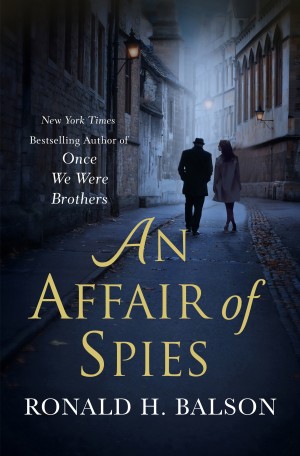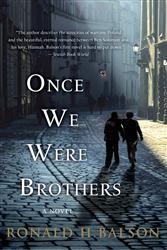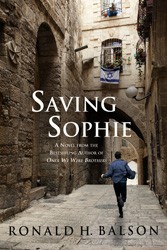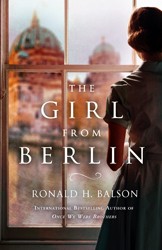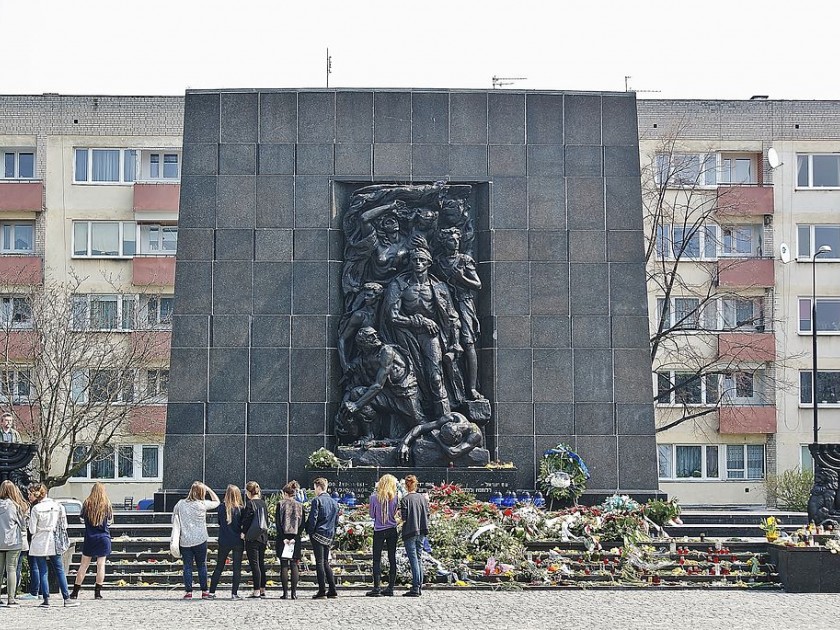
Monument to the Ghetto Heroes, Warsaw, Poland; photo by Bosyantek as seen from the western side
On my desk in Chicago is a quote from Joan Didion that reads, “I am a writer. Imagining what someone would say or do comes to me as naturally as breathing.” Well, it may for Didion, but it doesn’t always come that easily for me. Still, the idea remains an aspiration for this fiction writer.
I have been writing for almost fifty years, but for most of that time my work has been nonfiction in the form of legal briefs. Memoranda, appeals, and motions are client-centered and by necessity are focused on disputed issues, but they are storytelling nonetheless. Ask any appellate judge.
Like many lawyers, I longed to take storytelling to the next step, creating characters, devising plots and, as Didion says, imagining what someone would say or do. It’s a big step. I believe that before you can take that step, something needs to grab you and evoke your passion. For me that happened fifteen years ago, when my legal work took me to Poland.
The case was a typical commercial dispute between two American companies and had very little to do with Poland other than the situs of the product installation. Before going, I viewed Poland as just another location to examine documents, take depositions, and interview government officials — albeit halfway around the world. I didn’t go there to write a novel. But soon after my arrival, I was struck by the fact that I was in a country that had been crushed and devastated only eighty years ago. There are war memorials around every corner. Take a walk and you’ll see a huge memorial to the Warsaw uprising, or the perimeter of the Warsaw Ghetto, or an artist’s impression of a boxcar in white marble with victims’ names chiseled in permanent remembrance. Stroll down a side street, like I did, and stop when you come across bullet holes in a brick wall and a plaque recalling the death of martyrs.
Soon after my arrival, I was struck by the fact that I was in a country that had been crushed and devastated only eighty years ago.
Visiting Poland was a moving experience — one that grabbed me, shook me, and said, You can get passionate about this. So I decided to write a story about an ordinary family in a typical Polish town. What would life have been like during the Nazi invasion and occupation? That story became my first novel, Once We Were Brothers.
Since then, I have written seven novels, all historical fiction. Each of them has a wellspring, a source that tugged on my sleeve. A few years ago, I met an extraordinary woman, a survivor of several concentration camps, who ultimately escaped from the death march from Auschwitz. She gave me permission to use her experiences as the foundation for Karolina’s Twins, my third novel.
Reading and studying about the plight of Jewish musicians and artists in Berlin during the 1930s — that transition from the Weimar Republic’s cultural explosions to the repressive horrors of Nazification — was the impetus for my fourth novel, A Girl From Berlin. The thirty-year conflict between Protestants and Catholics in Northern Ireland formed the backdrop for a murder mystery, The Trust. The violent city of Hebron and the conflict between the Israelis and Palestinians was the platform for Saving Sophie.
In a sense, writing historical fiction is a little like cheating; the setting has already been written for me. All I have to do is create characters, situations, and plots and weave them into the historical backdrop. Then I invite my readers to identify with the characters, take a journey back to that time and place, and experience history in a personal way.
In my most recently published work, Eli’s Promise, we meet Eli Rosen. In many ways, Eli is a metaphor; he is symbolic. His journey from the oppression of Nazi-occupied Lublin, to a postwar displaced persons’ camp in Allied-occupied Germany, and finally to America represents the migration of Central European Jews as a whole. Although the story spans several years, the different eras are tied together by a common thread: the life of a good man plagued by a scurrilous profiteer.
Eli lives in prewar Lublin, a vibrant city of great importance to Jewish culture. Lublin was the seat of Jewish learning with the world’s most revered Yeshiva. As such, it was a target for the Nazis. The novel also focuses on life in the postwar displaced persons camps. When I lead book discussion groups, I am always amazed at how many people I meet whose parents met and married in DP camps. When immigration quotas were eased in the late 1940s, European refugees found their way from the DP camps to America’s big cities — one of which is where the third portion of Eli’s Promise takes place.
Denmark and its heroic rescue of its Jewish citizens during World War II is the backdrop of my latest work. The courage of non-Jewish Danish people in defying the Gestapo, hiding their Jewish countrymen, and ferrying them to safety is an inspiring story that must be told and retold. In the gardens of Yad Vashem, in the section for Righteous Among the Nations, the Danish people are honored. They are honored as a whole. I will tell that story in Defending Britta Stein, due to be released on September 7, 2021.
Ronald H. Balson is an attorney, professor, and writer. His novel The Girl From Berlin won the National Jewish Book Award and was the Illinois Reading Council’s adult fiction selection for the Illinois Reads program. He is also the author of Eli’s Promise, a Target Book Club selection, A Place to Hide, An Affair of Spies, Defending Britta Stein, Karolina’s Twins, The Trust, Saving Sophie, and the international bestseller, Once We Were Brothers. He lives in Chicago.
